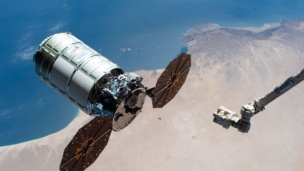The National Reconnaissance Office on Wednesday awarded six companies study contracts for commercial hyperspectral imaging, which can detect changes in satellite images that would be invisible to the human eye.
“We are operating the largest, most diverse, most capable overhead constellation in NRO’s history as we face increasingly complex threats in space and on the ground,” NRO Director Chris Scolese said in a statement. “Through these newest contracts, we are very excited to explore the potential of commercial hyperspectral imagery and what it may be able to contribute to our world-class intelligence, surveillance, and reconnaissance capabilities.”
Who won?
The six companies – a mix of startups and established players in the field – are:
- BlackSky Technology ($BKSY), a geospatial intelligence startup founded in 2014
- HyperSat, a hyperspectral imagery provider based in McLean, Va.
- Orbital Sidekick, a space-based global monitoring company
- Pixxel, an Indian-American hyperspectral constellation operator
- Planet ($PL), an Earth observation company that regularly provides data to the NRO
- Xplore, a space data company that serves commercial and government customers
The details
Each contract will be worth ~$300,000 with an initial six-month base performance period, according to an NRO spokesperson. However, each contract includes two two-year options for extension, bringing them to four years total, with additional options to extend further.
Lightspeed: NRO tooted its own horn a bit for awarding the contracts just four months after issuing RFPs. And it does represent a breakneck speed for the government. “These contracts demonstrate our continued commitment to agile acquisition,” said Pete Muend, director of the NRO’s commercial systems program office. “Speed remains vital to take advantage of the innovation coming from industry.”
What’s next?
The contracts will be split into two stages: The first stage will study the commercial systems and estimate capabilities of both individual sensors and collective constellations.
The second stage will focus on “assessing on-orbit capabilities and procuring data products,” per the NRO.




